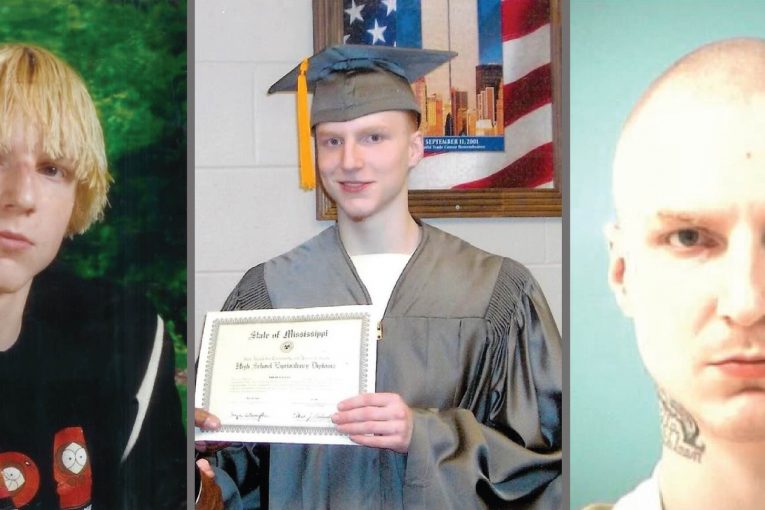

By Kritika Singh
WASHINGTON, DC — In a 6-3 decision last month, the United States Supreme Court ruled in Jones v. Mississippi that judges need not establish the incorrigibility of a minor before sentencing the defendant to juvenile life without parole (J. L.W.O.P.).
The case concerned the 2004 murder of Bertis Jones in his Mississipi home by his grandson, Brett Jones. The two were in a heated argument after Bertis Jones discovered his grandson’s girlfriend in his bedroom, during which the younger Mr. Jones repeatedly stabbed his grandfather. Mr. Jones maintains he only did this in self-defense, but he was sentenced to life without the possibility of parole nonetheless.
However, Mr. Jones appealed his case after the Supreme Court’s 2012 decision in Miller v. Alabama, which determined that mandatory J.L.W.O.P. sentences for minors were unconstitutional under the Eight Amendment, and that judges have the discretion to impose lesser punishments. Mr. Jones’s appeal was ultimately denied when the sentencing judge ruled that L.W.O.P. remained the appropriate sentence for his case.
In his 2020 appeal to the Supreme Court, Jones cited the decisions in Miller v. Alabama and Montgomery v. Louisiana—which made the Miller decision retroactive—to argue that judges must make a separate factual finding of incorrigibility before sentencing to J.L.W.O.P, rather than simply exercising discretion. 
Justice Brett Kavanaugh, writing for the majority, rejected Jones’s argument, holding that “In such a case, a discretionary sentencing system is both constitutionally necessary and constitutionally sufficient.”
While much of the criticism surrounding the case has been centered around discourse that the Court abandoned respect for legal precedent in its ruling, perhaps what is even more striking is the implication in the Court’s decision that the justice system has no obligation to consider an individual’s potential for rehabilitation.
Only three years ago, Justice Kavanaugh himself refuted allegations of sexual assault during his Supreme Court confirmation hearing by saying “If we want to sit here and talk about whether a supreme court nomination should be based on a high school yearbook page, I think that’s taken us to a new level of absurdity.”
Despite his previous insistence that youthful mistakes should not define one’s life and career, Justice Kavanaugh was quick to take the opposite stance in last week’s case. Prison reform advocates have highlighted that this will have tremendous consequences for juvenile defendants across the nation, but particularly for POC defendants. As noted by Justice Sonia Sotomayor in the dissenting opinion, 70% of all minors sentenced to J.L.W.O.P. are children of color.
The Court’s decision in this case then begs us to reconsider the goals of the criminal justice system as a whole. If we are to determine that decades of incarceration are not sufficient to rehabilitate an individual who was only a child when they were prosecuted, then what exactly does incarceration accomplish?
Mr. Jones told the court during his resentencing hearing, “‘I’m not the same person I was when I was 15 … I’ve become a pretty decent person in life. And I’ve pretty much taken every avenue that I could possibly take in prison to rehabilitate myself.’”
While Justice Kavanaugh is correct in asserting that it is not the responsibility of the Court to voice their opinion regarding the fairness of Mr. Jones’s case, it seems self-evident that it is their responsibility to hold themselves to the same standards that they hold others. Given the contradictory nature of Justice Kavanaugh’s statement of the leniency and judicial discretion and the rest of the majority in Jones v. Mississippi have utterly failed.
Disclaimer–this piece is an opinion article and thus does not reflect the official opinions of the University of California, Berkeley.
 Kritika Singh is a writer for The Vanguard at Berkeley’s prison reform desk. She is a freshman at UC Berkeley studying Political Science. She is from Tracy, CA.
Kritika Singh is a writer for The Vanguard at Berkeley’s prison reform desk. She is a freshman at UC Berkeley studying Political Science. She is from Tracy, CA.
To sign up for our new newsletter – Everyday Injustice – https://tinyurl.com/yyultcf9
Support our work – to become a sustaining at $5 – $10- $25 per month hit the link: